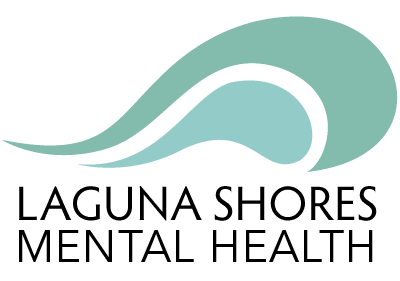Depression Treatment
At Laguna Shores Mental Health, we understand that depression can feel like an overwhelming battle. Whether you’re dealing with persistent sadness, fatigue, or feelings of hopelessness, you don’t have to face it alone.
Our team of compassionate professionals is dedicated to providing comprehensive care to help adults 18 and older navigate their mental health challenges. As a brand-new residential facility in Southern California, with a primary focus on mental health, we aim to create a sanctuary where individuals can find hope, healing, and lasting recovery.
Depression is more than just feeling sad or having a rough day—it’s a serious mental health condition that affects millions of people across the United States. Over 21 million adults in the U.S. have experienced at least one major depressive episode, according to the National Institute of Mental Health (NIMH). Depression can impact every part of life, from daily functioning to personal relationships, making it crucial to seek professional help.
Common Symptoms of Depression
- Persistent feelings of sadness or emptiness
- Loss of interest in activities once enjoyed
- Changes in appetite or weight
- Sleep disturbances, such as insomnia or oversleeping
- Fatigue or lack of energy
- Difficulty concentrating
- Feelings of worthlessness or guilt
- Thoughts of death or suicide
If you or someone you know is experiencing these symptoms, it’s essential to reach out for professional help. Depression is treatable, and with the right support, recovery is possible.

Treatment for
Depression at Laguna Mental Health
At Laguna Mental Health, we’re committed to offering a comprehensive, individualized approach to depression treatment. While our exact treatment modalities are still being finalized, we plan to offer a range of therapies designed to address both the emotional and physical symptoms of depression.
Counseling for Depression
One of the core components of depression treatment is counseling. Our highly trained therapists will work closely with residents to identify the underlying causes of their depression and develop healthy coping mechanisms. Therapeutic approaches may include:
- Cognitive Behavioral Therapy (CBT): This evidence-based approach helps individuals recognize negative thought patterns and replace them with healthier, more positive ones.
- Dialectical Behavior Therapy (DBT): DBT teaches skills like mindfulness and emotional regulation, which are particularly helpful for those struggling with depression.
Trauma-Informed Therapy: Since depression often coexists with past trauma, our team will use trauma-informed care to address and heal unresolved traumatic experiences that may be contributing to depressive symptoms.
Inpatient Therapy for Depression
Our residential setting allows for intensive, around-the-clock care. Inpatient therapy for depression provides a structured environment where clients can focus entirely on their recovery. This 24/7 support is crucial for those whose depression has made daily functioning difficult. Inpatient care at Laguna Mental Health includes:
- Individual Therapy: One-on-one sessions with a licensed therapist to dive deep into the personal aspects of each client’s depression.
- Group Therapy: Led by a trained facilitator, group sessions offer a safe space for residents to share their experiences, learn from others, and build supportive relationships.
- Holistic Approaches: While programming is still being finalized, we hope to offer additional holistic therapies such as mindfulness, meditation, and possibly art or music therapy to complement traditional talk therapy.
Addressing Co-Occurring Disorders
Depression often occurs alongside other mental health conditions such as anxiety, PTSD, ADHD, and substance use disorders. At Laguna Mental Health Facility, we are prepared to treat these co-occurring disorders by providing integrated care that addresses both mental health and substance use concerns. Our holistic approach ensures that all aspects of a client’s well-being are considered, helping to improve overall outcomes and reduce the risk of relapse. By treating both depression and substance use simultaneously, we aim to offer a comprehensive path to long-term recovery and wellness.
Statistics on
Depression and Mental Health
In the United States, mental health disorders are incredibly common, with approximately 1 in 5 adults experiencing some form of mental illness each year. Depression, in particular, is one of the leading causes of disability worldwide. Despite its prevalence, many people hesitate to seek help due to stigma or the belief that their symptoms aren’t severe enough.
- In 2022, an estimated 4% of all U.S. adults had at least one major depressive episode, according to the NIMH.
- Individuals aged 18-25 years had the highest prevalence of depression at 17%, making young adults particularly vulnerable.
- Adults with co-occurring mental health and substance use disorders are more likely to experience prolonged or severe depression.


Why Choose
Laguna Mental Health?
Choosing to seek help for depression can be a daunting step, but at Laguna Mental Health Facility, we strive to create a welcoming, non-judgmental space where healing can begin. Here’s why our facility stands out:
- Intimate Setting: With just six residents at a time, we can provide truly individualized care, ensuring each person feels seen, heard, and supported.
- Residential Focus: Our residential model allows clients to step away from the distractions and challenges of daily life, creating space for deep, focused healing.
- Comprehensive Care: Whether you’re dealing with depression, anxiety, or a combination of mental health issues, our team will develop a treatment plan tailored specifically to your needs.
Contact Us Today
If you or a loved one is struggling with depression, help is available. At Laguna Mental Health Facility, we are here to support you on your journey to recovery. Our team is happy to answer any questions and provide more information about our treatment options. Don’t wait—reach out today and take the first step toward a brighter future.
- National Institute of Mental Health (NIMH). Major Depression. https://www.nimh.nih.gov/health/statistics/major-depression
- Substance Abuse and Mental Health Services Administration (SAMHSA). Key Substance Use and Mental Health Indicators. https://www.samhsa.gov/data/
